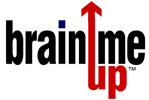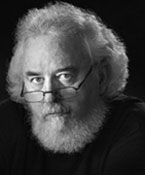My Nominee for World’s Wisest Brain: Edward O. Wilson, Who Knows a Bottleneck in an Ant Colony When He Sees One
I think I had my gallbladder removed the other day. My surgeon says he took it out but instead of bringing it to the office afterwards as “proof of extraction,” he says he sent it to the lab. I don’t know what the lab did with it. But then where gallbladders are concerned, it doesn’t appear to matter because it is hard to document that gallbladders matter at all. At least, I’m not wearing a gall collection sack on my belt now that it is gone. I told the surgeon, “If there is an Almighty and if I ever get to have a one-on-one with her, my first question will be, “Why a gallbladder?’”
He replied, “My first question will be, ‘Why an appendix?’”
Edward O. Wilson, the great biologist, ant expert and polymath on many other topics, would probably not be pleased with our flippancy on such matters.
In an interview by Psychology Today’s Jill Neimark that I turned up on a New York University web site, Dr. Wilson was characteristically blunt when talking about the paucity of “accidents” in nature.
He observed, “One thing is that natural selection is brutal. It is brutal to see strong, beautiful ant queens and males go forth and realize that they’re all going to be devastated, that one out of 10,000 queens will make it into the ground to start a new colony. Every little advantage that an organism has can make an enormous difference. The other thing is that natural selection grinds exceedingly small. Natural selection doesn’t allow for foul-ups in an ant colony any more than in a hunter-gatherer society. Real biologists who actually do the research will tell you that they almost never find a phenomenon, no matter how odd or irrelevant it looks when they first see it, that doesn’t prove to serve a function.”
Please consider E.O. Wilson to be one of today’s greatest living minds. In my opinion, his might just be the wisest one. Maybe it’s the richness of his background combined the reach of his curiosity and, of course, that world-class intellect. Raised a Southern Baptist, he’s now a self-described secular humanist—with a surviving great respect for Southern Baptists. Reared in the South, he quickly wowed them in the Ivy League (tenured Harvard professor at age 26). Impeccable scientific credentials but one of the popular writing world’s most gifted scribes (two Pulitzer Prizes). Listen to him for a couple of minutes and you would wish every child could have him for a grandfather—and every university student for a professor.
I went looking for other interviews with Dr. Wilson on the Web and offer this collection of his wisdom and witticisms:
On what big evolutionary trigger produced the human brain: “That’s the mother of all questions. The paleoanthropologists put a lot of emphasis on climate change. I don’t believe that for a minute, because geological history is full of vast climactic changes, and large numbers of animal species that lived through them unchanged. I think evolution came up with a fairly big animal, primates, with a fairly big brain, and then this animal somehow got on its hind legs. And once it were erect, it had the freedom of hands. It could carry things. It could try out tools. This was the takeoff point. Nothing like that had ever happened before. Climactic change could have speeded the process, but was not critical.”
On how the brain creates a sense of self: I’m aware of you, you’re aware of me. There’s a sense of self. But there is no transcendental center of the brain somewhere that is in control of the machinery, pulling the levers and possessed of the capacity to float free of our mortal coil when that moment comes. You’ll hear the voice of the neurobiologist emerging from me on this. It’s natural we feel there’s a self because of the body that we’re in. The brain is mapping the world. Often that map is distorted, but it’s a map with constant immediate sensory input. The brain is organized heavily around sensations coming from the body, and that is so intense, so much at the center of conscious experience, including all the input coming from our body, and so it’s seen as the principal protagonist. That’s what the self is.”
On what Wilson meant in his book, The Future of Life, when he spoke of a bottleneck for the human species: The bottleneck is what I believe humanity’s in right now. We all, or most all, realize that humanity has pushed its population growth pretty close to the limit. We really are at risk of using up natural resources and developing shortages in them that will be extremely difficult to overcome, and yet we have this bright prospect down the line that humanity is not going to keep on growing much more in population, that it is likely, if we can use the United Nation’s projections at this stage, to top out at perhaps nine to ten billion, fifty percent more people than exist today, and then begin to decline.”
On what the result will be if humanity doesn’t get “through the bottleneck” in reasonably good shape: “Impoverished, biologically. I mean in the sense of having wiped out a large part of the rest of life. I think that if we continue to encroach on the natural ecosystems, you know, the dwindling rain forest, the rivers that contain around the world so much diversity, as we are doing and continue present trends, then we will have without abatement, we keep this and this rate, we will have eliminated as many as half the species of plants and animals on earth.”
On what humans will lose if they allow mass destruction of the remaining species: “Here’s an easy way to remember it. We get from nature scot-free—so long as we don’t screw it up and destroy it—approximately the same amount of services as far as you can measure them in dollars as we ourselves produce each year. It [is] about $30 trillion a year. T. Trillion. And these creatures, they have built in them, in their genes and then in their physiology an endless array of defenses, many of which we could use and we have used, like producing antibiotics we never heard of using chemicals that we never even dreamed existed. And so we have already benefited immensely from wild species in that way. But, you know, let me get to the bottom line as far as I’m concerned. Isn’t it morally wrong to destroy the rest of life, you know, in any way you look at it—for what it’s going to do to human spirit and aesthetics?”
On why he thinks humans deserve to be called “the crown jewel of creation”:
Well, you know, I sort of think we are, in one sense. That is to say we are the brain of the biosphere. We are the ones that finally, after 4 1/2 billion years of evolution—that’s what it took to get to where we are—actually developed enough power, reasoning power, to see what’s happening, to understand the history that created us and to realize almost too late what we’re doing. So in the sense that we are something new under the sun and on the Earth…we have an enormous…we’re the ones that can destroy the world. No other single species ever had anything like that power. We have the power to destroy the world, the living world. And we also have the knowledge to avoid doing it. And it’s sort of a race, a race to the finish line that we will develop the intelligence and the policies and the decency to bring it to a halt, not just for life itself but for future generations before, you know, the juggernaut takes us over.”
If I ever get into a one-on-one conversation with Edward O. Wilson, my first question will be, “Why a gallbladder?”
The above quotes were taken from these interviews with Dr. Wilson:
By Jill Neimark of Psychology Today: Edward O. Wilson is On Top of the World
By Ben Wattenberg on PBS: Edward O. Wilson and The Future of Life
By Bill Moyers on PBS: Bill Moyers talks with E.O. Wilson


